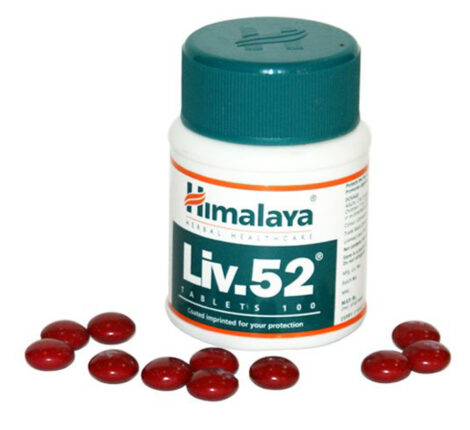The future of Copyright societies in India
Creating unique work takes a lot of sweat and hard work, which deserves due protection from being misused by unauthorized persons. It is the right of the original creator to get due credit for their work and protect its uniqueness and originality.
We often see unauthorized persons gaining the wrongful advantage of the creator’s work without giving them due credit. Hence, these content creators need to get copyright registration for their work by a recognized copyright society.
A copyright society is a collective administration of authors and owners of copyrighted works that manage and protect copyright in works. No one other than the authors and owners of such work can keep track or control the use of his work.
An author should join a National Copyright Society as it helps them keep their work under better vigilance and keep track of the use of their work. These societies can facilitate the authors for a smooth collection of royalties for their work. As India is a member of several international conventions, it provides a chance to the Indian Copyright Societies to collaborate with foreign societies and further help in a better collection of royalties for their original works being used in foreign countries. Hence, it is beneficial for an author/owner to join a copyright society to extract maximum benefits out of their work.
Copyright societies in India
In India, Section 33 of the Copyright Act 1957 (hereinafter the Act) mentions the copyright society. Further, only one society can be registered to do business in respect of the same class of works, and a minimum of seven members are required to form a copyright society. Only a copyright society can license for any dramatic, artistic, musical, or literary work incorporated in cinematic or sound recording. A copyright society is granted registration for five years, and it has to be renewed every five years to maintain its legal status.
Functions of the Copyright Societies
The copyright societies perform the following functions:
- Issuing license and collecting fees– An essential function of a copyright society is issuing licenses, collecting payments, and distributing the collected fees to the respective owners. The society is to collect fees following the Tariff Scheme as prescribed in the Copyright Rules, 2013. The fee collected is distributed to the authors after deducting a fee not exceeding 15% of the total amount collected.
- Administering owners’ rights– By way of Section 34 of the Act, the copyright society is permitted to accept the authorization for helping with the issue of license or payment collection if given in writing by the copyright owner. However, the owner can revoke/withdraw the consent given to the society at any given time.
The copyright society must agree with a foreign country to collect royalties from the users of that particular country. Upon agreeing, such a foreign country shall not discriminate between the treatment of Indian owners and other owners regarding the terms and conditions of licensing or distribution of royalties.
Rule 44 of the Copyright Rules, 2013 prescribes, an association of persons “formed for the purpose of carrying on the business of issuing or granting licenses in respect of a right or set of rights in specific categories of works” may file an application with the Registrar of Copyrights for registration as a copyright society.
As per Section 33(3) of the Act, the government must look at the interests of authors, public, and prospective licensees, and “the ability and professional competence of the applicants”. Additionally, as per Section 35 of the Act and Rule 44(2) of the Rules, every copyright society should contain a governing body with equal representation of authors. Rule 49 rules the determination of granting registration to the applicant which must be carried out within 60 days.
Evolution of the ACT thus far
The Copyright Act, which came into force in 1957, has been amended five times to date to accommodate the ever-changing ways of producing content and the need to secure that content with copyrights. The first few amendments were made in the years 1983 & 1984, followed by a comprehensive amendment in the year 1994 as the legislature realized that with the development of computer technology and other digital services, the existing laws weren’t enough to protect the copyright interests of the owners. The Copyright (Amendment) Act, 1994 added Section 33 to the Act, making it mandatory that only copyright societies grant or issue copyright licenses. The 1994 amendment was followed by the Copyright (Amendment) Act, 2012 (2012 Amendment), as a part of which Section 33(3A) was added, which laid down a new guideline that any copyright society carrying out the business of granting or issuing copyright license must register itself again within 12 months from the date of the amendment. Therefore, any copyright society which existed before the amendment has to re-register itself within the given time frame. However, there was no punishment prescribed if any copyright society fails to register itself within the given timeframe.
Ambiguities and Anomalies
Even though the legislature intended to bolster the copyright laws in the country for more excellent protection of the owners’ interest, it contains several anomalies and is highly ambiguous. For instance, Section 33 of the Act, inserted via the 1994 amendment, states that only the copyright societies can carry ‘issuing or granting licence’ for creative works; however, it does not mention anything about the copyrightable work. It is also important to note that Section 18 of the same Act states that the owners of the copyrighted work can assign the copyrights to anyone they want to.
An ambiguity is formed here as only a copyright society has the right to issue a permit under Section 33. Still, Section 30 provides for the owner to have a right to issue a valid license for their work. It is pertinent to note here that Section 18 and Section 30 has always been a part of the Act since its inception, whereas Section 33 was added by the 1994 amendment, and it is still undecided if Section 33 will prevail over Section 18 and Section 30 vice versa.
Therefore, an owner has the right to assign their copyright to a production company and any person simultaneously. Hence, in such a process, joining a copyright society is not necessary.
Production companies in the film and music industries must hire third parties to collect and grant licenses and collection of payments in that respect. Alternatively, as per Section 18 of the Act, the production houses can also assign public performance rights to third-party collecting and licensing bodies to ensure that the non-owners do no infringement of any copyright to prevent copyrights.
A classic example of this situation was the case of Leopold Café Stores v. Novex Communications Pvt. Ltd, 1wherein the Hon’ble Bombay High Court looked into issue whether Novex was entitled to grant licenses on behalf of Copyright Owners of various works? The brief facts of the case are that Leopold Café in Mumbai is a very famous café that obtained an order on June 26, 2014, against Novex Communications, claiming to be an authorized agent of Copyright Owners such as Yash Raj Films and Shemaroo.
This order restrained Novex from issuing any licenses under Section 33 of the Act, which prohibits a person, except Copyright societies, duly registered under the Act, from issuing or granting licenses. In this judgement the Bombay High Court observed and held that Novex could not issue or grant licenses as per Section 33 of the Act. However, it can carry on with issuing licenses as an authorized agent of Copyright Owners under Section 30 of said Act.
The legal battle between RMPL and PPL
Another legal battle is going on between Recorded Music Performance Limited (RMPL) and Phonographic Performance Limited India (PPL). RMPL was recently granted copyright society status for class of sound recording. PPL is well-established company that controls “Public Performance Rights” and “Radio Broadcasting” with over 4.5 Million International & Domestic songs. It held the rights of copyright society until 2014, but the Registrar of Copyright declined its re-registration. PPL recently moves to Delhi High Court after the Registrar of Copyrights refused its registration application. One of the pleas before the court was to restrain the government from processing any application for registering a copyright society for sound recordings. The court, denied this relief and observed that the government “shall not take any action inconsistent with” 2 the fact that PPL’s registration application may revive based on the outcome of the case.
However, the method by which the Hon’ble Court conducted this assessment is shrouded in mystery. If any, the conversations that took place as part of issuing the registration are not available to the public. Furthermore, even the notification of RMPL’s registration does not include any justifications.
After analyzing the RMPL’s application to register it as a copyright society, it was observed that the society was formed only a few months before filing of the registration application. Further, the society lacks even a single ‘author’ as a member of its governing body, as prescribed by law. Given the lack of transparency in granting the registration, it is challenging to determine what led to the decision.
This brings out the legal vacuum that exists concerning interests of the third party that is involved in issuing and granting a license of creative works and 2012 amendment that added subsection (1) to Section 33 has only added to the ambiguity and leaves bodies like Novex on an uncertain footing in legal matters. If they wish to continue issuing licenses, they need to evolve their structure to suit the requirements of Section 30 and Section 33, which happen to overlap. Not being a part of copyright society also seriously hampers the ability to initiate legal proceedings because, as per Section 55 of the Act, only owners or exclusive licensees of copyrighted work can initiate legal proceedings for copyright infringement. Therefore, as an agent, such companies may not be able to initiate legal proceedings.
Conclusion
Copyright societies are vital to protect and enhance the copyrights of owners and authors of creative work as it bestows several perks on owners if they join a copyright society. These societies are more efficient in granting licenses, collecting fees, and tracking any wrongful use of an original work.
While the legislature is still trying to protect the interests of the owners of creative work, improper drafting of laws has led to certain ambiguities that need to be taken into consideration for covering all the parties involved in granting license and collecting fees.




